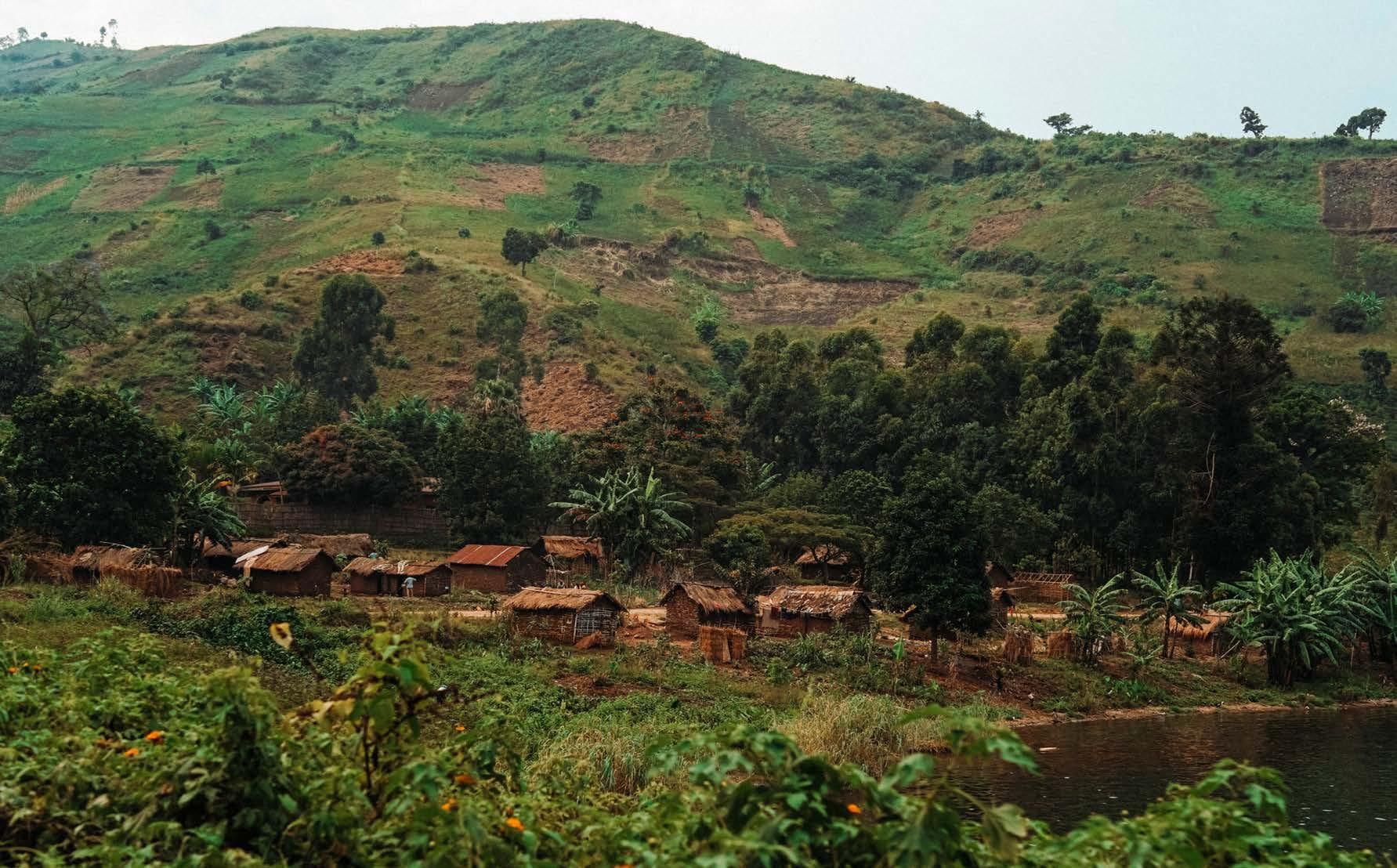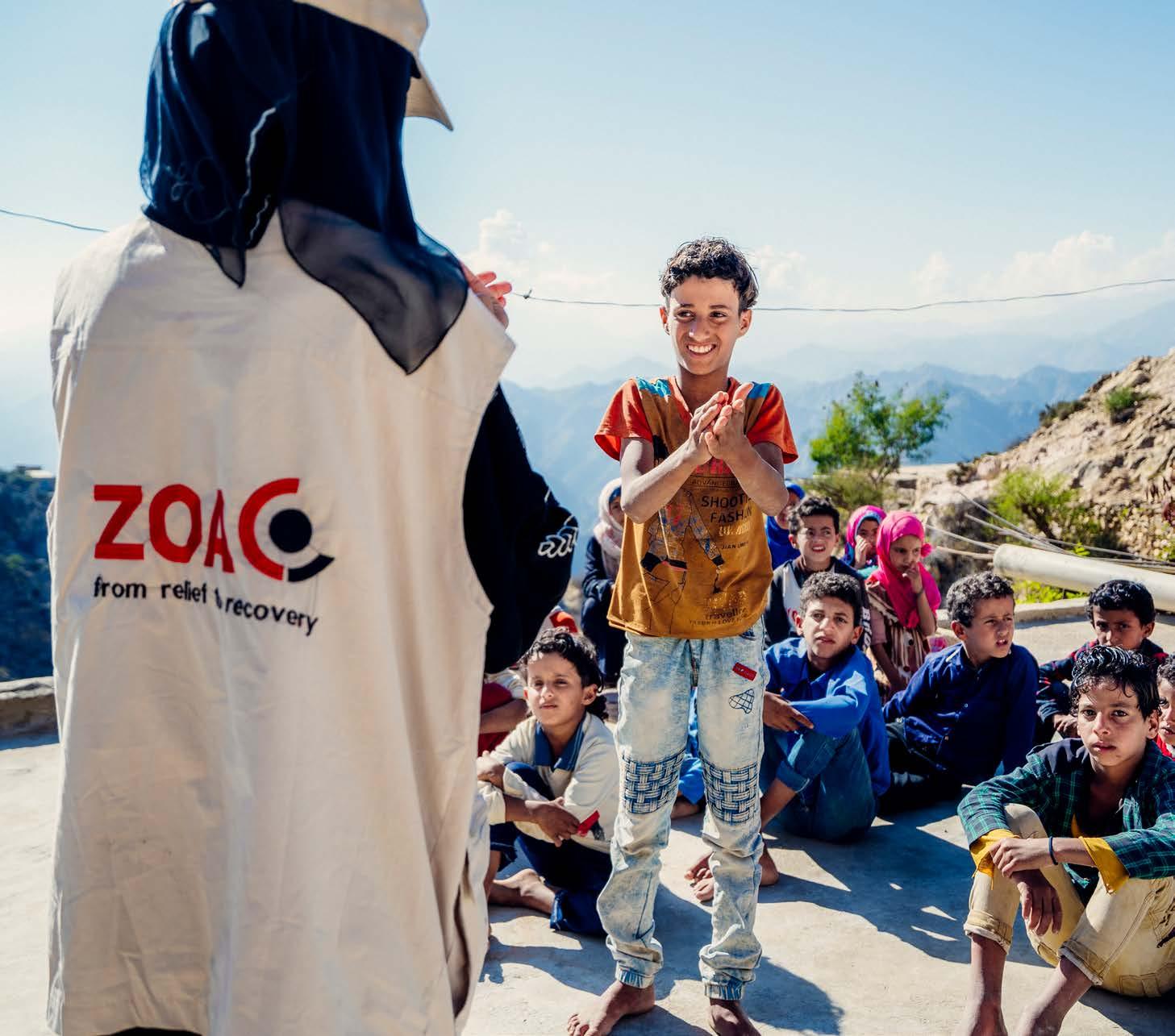
3 minute read
Trends & Risks Four trends – and ZOA’s response
from Annual Report 2022
by ZOA
ZOA continuously monitors trends in the humanitarian sector and responds accordingly. The goal is always to provide high-quality support to as many victims of natural disasters and violent conflicts as possible. What risks are involved? And what was ZOA's response to these risks in 2022? Chief Executive Officer Chris Lukkien and Chief Programme Officer Edwin Visser explain.
Shrinking humanitarian space
Advertisement
The space for humanitarian work continues to be under pressure. “Crises are politicized,” explains Edwin. “We are a politically neutral organisation focused on helping people in need, no matter their background. Yet, institutional donors or authorities in places where we work may sometimes have different agendas or priorities. This can cause tension and delays in project implementation.” ZOA, therefore, keeps stressing its neutrality. “That does not make our work easy,” says Chris. “NGOs can be perceived as easy means to gain access to funds and services. Participating in local networks helps us protect neutrality. Together, we are stronger as we continue to focus on those most in need.”
Security
Despite increased volatility around the world, ZOA did not suffer any major security incidents in 2022. “The implementation of programmes went more or less according to plan,” says Chris. “We are very thankful for the fact that none of our workers have lost their lives due to security issues,” says Edwin. “But it absolutely does not give us any guarantee for the future.”
Over the years, ZOA has become experienced with working in high-risk areas. “We are very strict,” says Edwin. “Nobody travels anywhere without having gone through security training first.” In 2022, ZOA focused on providing security training to all local staff. “This helps all our personnel to be aware of risks. Because, in the end, we work in extremely dangerous areas.”
3 4
Localisation
The trend towards localisation is gaining momentum within the humanitarian sector. This is not, however, an entirely new theme for ZOA. It is, actually, one of ZOA's three strategic plan priorities for 2023-2026. “Within our hybrid model, we have always worked with and through local partners,” explains Chris. “As part of our strategic priorities, we want to take localisation to its next level. That means making our working relationship with local partners at a more strategic level and recognising more clearly the expertise both parties bring to the table.”
One of the risks to manage is transitioning from an organisation that is focused on self-implementation towards one that gives greater attention to technical support and quality assurance as it implements through other organisations. For this reason, ZOA appointed a localisation specialist in 2022 to help develop policies and think through the impact of localisation in ZOA’s programmes. “If a focus on localisation does not pull us out of our comfort zone, we are not doing it right,” states Edwin. “This will, in the long run, truly change the way we work.”
Scaling up funding
One of ZOA's strategic goals of the past three years was to increase its portfolio to at least 5 million euros per country. “We have made good progress towards this goal,” says Chris. “In three countries we are moving towards project portfolios of as much as 10 million euros.” Much of this large-scale work is done in consortia with other organisations. ZOA is often asked to lead consortia. A risk we now know to consider is a potential clash of organisational cultures. In 2022, ZOA deliberately sought to expand its knowledge of consortium management, and the organisation is now working on developing guidelines and policies from lessons learned.
Participating in consortia tends to bring about growth in institutional funding. However, growth in private funding remains equally important. “We strive for 25 percent of our funding to come from our own constituency,” says Chris. “However, in recent years, we have been closer to 20 percent.” Even with this ratio, ZOA still has a fair amount of flexibility and can maintain necessary reserves. It is, for example, important for ZOA to spend resources on fraud prevention. “Donors are not always willing to contribute to this,” says Edwin. To mitigate this risk, ZOA is lobbying with donors. “We need financial space to meet important quality and compliance criteria. This will only increase while we continue to grow as an organisation.”
At the same time, ZOA has been diligently working to increase its share in the private funding market. “We have invested a lot in our relationship with our Dutch constituency,” says Chris. “And there is still potential for further growth.”
We are faithful
We want to bring lasting change and are committed to staying when the initial crisis is over. Even when local circumstances are challenging, we seek to reach out to the most vulnerable. We recognise the role and capacity of local actors and seek to collaborate with them. Being aware of our temporary role and presence, we are committed to investing in strengthening local civil society.











